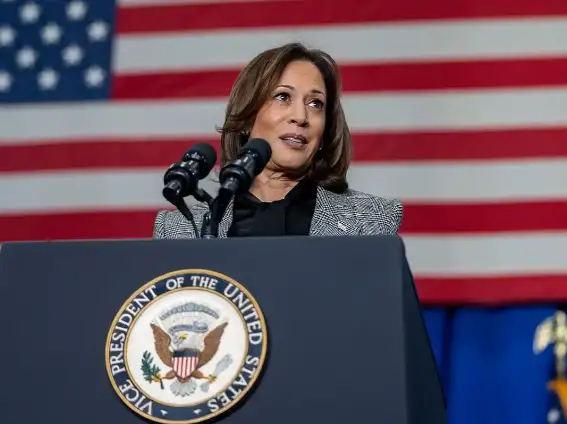Allan Lichtman’s 13-Factor System Points to VP Weaknesses
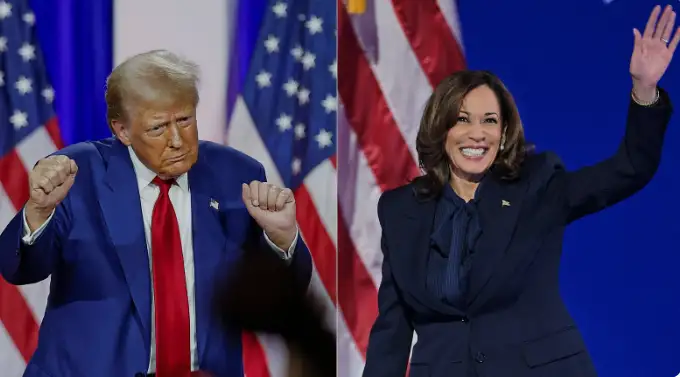
On November 5, the US presidential election will take place between former President Donald Trump and incumbent Vice President Kamala Harris. According to the latest released polls, Harris would win the election by a margin of 49 percent to 46 percent. She also holds a slight advantage according to better predictions.
However, Trump holds an advantage in the configuration of the Electoral College. Therefore, who will become the next leader of the United States remains uncertain, and one way to identify who has the greater likelihood is using the methodology of Allan Lichtman, a US historian. Lichtman gained fame for developing a 13-factor system to predict US electoral winners.
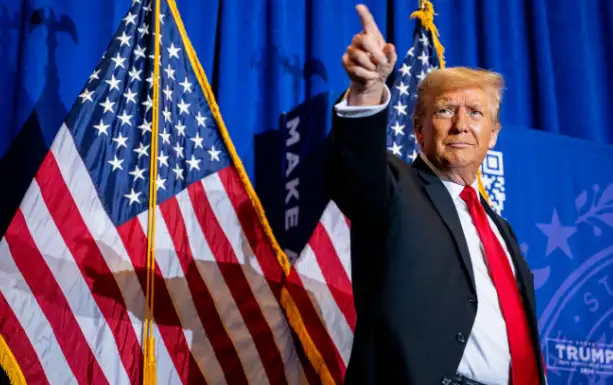
Lichtman has successfully predicted the outcome in nine of the last 10 presidential elections. The exception occurred in 2000, during the closest presidential election in US history. That year, Republican George W. Bush defeated Democrat Albert Gore. The outcome hinged on the Florida vote, where Bush won by 537 votes out of 5,825,043 cast. A margin of 0.0000922 percent gave Bush 271 electoral votes compared to Gore’s 267 (a candidate needs 270 electoral votes to win the presidency). Therefore, Lichtman has justifiably earned the nickname: “Nostradamus of elections.”
Lichtman’s prediction method consists of 13 true-false statements or factors. “True” statements favor the reelection of the incumbent party. These factors assess political stability, economic performance, foreign-policy successes or failures, social unrest, and the presence of a charismatic candidate or incumbent. If six or more factors turn out to be false, the incumbent party loses.
According to Lichtman, Harris is in line to win. However, that depends largely on subjective judgments pertaining to his criteria, like whether the economy is thriving or if the incumbent party has faced internal competition.
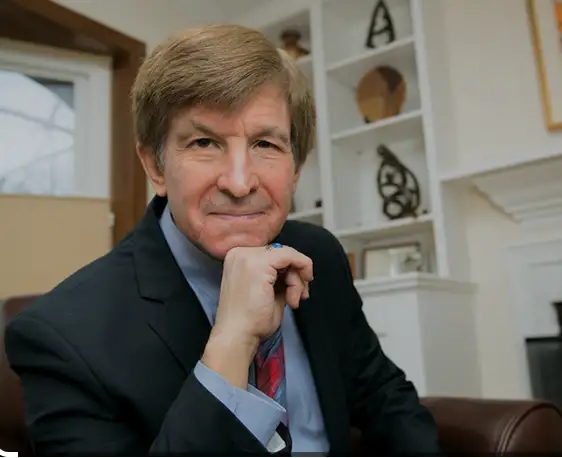
Below, I explain and classify the 13 factors:
Mandate: the incumbent party gained seats at the Congress in the midterm election.
False. Democrats did not gain seats in Congress in the 2022 election. However, Republicans were disappointed, since they expected the famous red wave that would give them a large majority in Congress.
Competition: the nomination’s competition was absent within the incumbent party. True, but only because the Democratic Party blocked Robert Kennedy Jr.’s (RFKJ) candidacy in the primaries, leading RFKJ to endorse Republican candidate Trump.
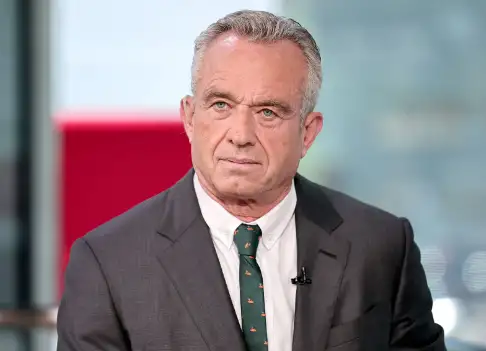
Incumbency: the sitting president is running for reelection. False. Joe Biden withdrew from the campaign. However, some might consider Harris the incumbent, since she currently serves as vice president. Biden recently stated that Harris accompanied him in all his [unpopular] decisions.
Third party: there is no strong third-party or independent candidate. True. However, the tight race in swing states like Arizona, Georgia, Nevada, and Wisconsin—where recent elections were decided by margins of 11,000 to 34,000 votes—means the presence of other parties could still sway the outcome.In 2000, for example, Ralph Nader of the Green Party received blame for Bush’s victory by winning 2,882,738 votes (2.7 percent of the total), effectively blocking Gore’s victory. Similarly, in 2016, Democrats criticized Green Party’s candidate Jill Stein for Trump’s victory, arguing she siphoned crucial votes away from Hillary Clinton in Wisconsin, Michigan, and Pennsylvania.
Short-term economy: no economic recession occurs during the campaign. True. Although there is no economic recession, disapproval of the incumbent administration’s economic management remains high. The economy tops voters’ concerns, and Trump continues to lead approval on this regard, though by narrow margins.

Long-term economy: growth has met or exceeded the average during the term.
True. However, the economy rebounded following the pandemic. Polls show more approval for Trump’s economic management compared to that of the Biden-Harris administration.
Policy change: significant policy shifts have been implemented. True. The Biden-Harris administration made substantial changes in public spending and immigration. However, Harris distances herself from these issues, as rising inflation and the ongoing migration crisis are often attributed to policies enacted by her administration.
Social unrest: widespread social disturbances did not occur during the term.
Partially true. Widespread disturbances have not broken out. There is growing social unrest and protests from the radical left over opposition to Israel, as well as a rising public discontent over the perception of increasing unreported crime and issues associated with illegal immigration. The upcoming dockworkers’ strike, set to paralyze ports on the Atlantic and Gulf of Mexico starting October 1, adds to these concerns.

Scandal: the administration is not marred by a major scandal. Partially true. The current administration has avoided major scandals, but only because mainstream media declined to cover key issues. However, this factor could be affected by recent revelations that lax immigration policies under the Biden-Harris administration allowed the entrance of numerous criminals into the country.
Foreign/military success: successes in foreign or military affairs have been achieved. False. The Biden-Harris administration lacks significant foreign policy achievements.
Foreign/military failure: no major failures in foreign or military affairs have occurred. False. Several failures unfolded under the Biden-Harris administration, including the chaotic withdrawal from Afghanistan, the ongoing war in Ukraine, the attack on Israel, and increasing threats from China to Taiwan.
Incumbent charisma: The incumbent is charismatic or a national hero. False. Technically, this does not apply, since Biden withdrew from the race, clearing the way for his vice president, who had been cataloged as one of the least popular vice presidents in history. However, a successful media campaign supported rebranding her image, raising her approval from double-digit negatives to positive territory since she became the official candidate.
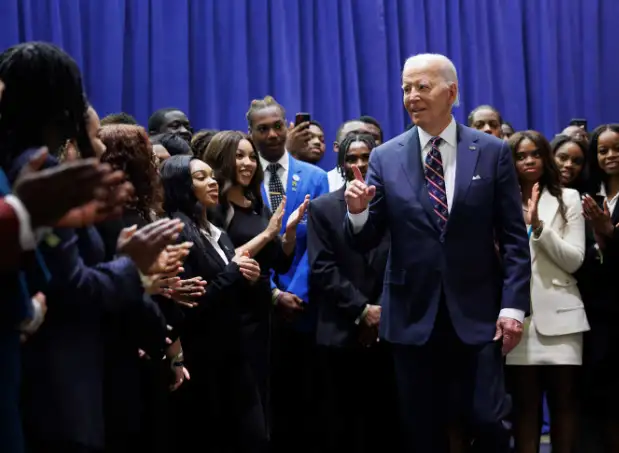
Opposition charisma: The challenger lacks charisma or national hero status.
Partially True. Although Trump consistently holds a net negative approval rating, his charisma solidifies his position as the opposition candidate. His electorate considers him highly charismatic.
At this stage, predicting the winner in November remains difficult. Polls and opinions will continue to shift leading up to election day. As we saw in 2016 and 2020, poll results and prediction models frequently change, making it tough to forecast the outcome.
The opinion of this article is foreign to Noticiero El Vigilante




